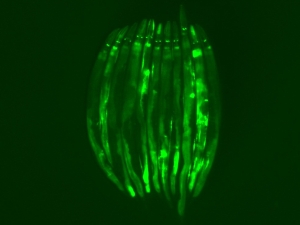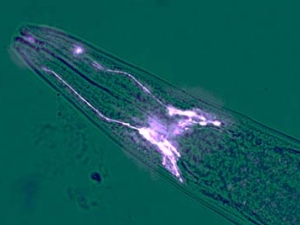

Research Bio
As an organism ages, its proteins face an increasing severity in the challenges they receive from extrinsic and intrinsic environmental perturbation. Chaperones become dysregulated, while the degradation machineries stop working properly. The protein accumulates damage and starts to misfold. At this point, the cell needs to mount a response to restore its homeostasis; however, the stress response machinery that it typically relies upon when faced with such challenges has lost its capacity to function.
This breakdown, however, does not lead to complete disorder. As the organism ages, it exhibits a degree of correlated, recognizable, and predictable changes to its physiology over time. These changes can occur synchronously across multiple tissues and organs. The phenotypic changes of aging occur in a type of concert, rather than in isolation, suggesting the residual participation of the endocrine system in the onset of age-related phenotypes. The demise of the cell thus most often occurs within the context of the simultaneous demise of the whole organism.
Andrew Dillin's lab focuses on the questions of why an aging organism begins to lose control over the integrity of its proteome, and how this loss is communicated across its various tissues. To accomplish this, they have taken the approach of breaking down a cell into its small and canonically-autonomous parts – its suborganelles and subcompartments – such that they can take a larger step back to ask how those smaller portions can communicate both with each other and with the organism as a whole. Their approaches have required them to diversify the systems in which they ask questions: they work on model systems ranging from stem cells and nematodes to mice. They have developed and applied techniques that allow them to manipulate signaling pathways or proteins within a single tissue, cell, or an organelle within a single cell so that they can observe how that small perturbation might reverberate and effect the physiology of the whole of the organism. Their work is fundamentally grounded in the endocrinology and genetics of aging, and our larger goal is to apply our findings towards uncovering new therapeutic strategies for the treatment of age-related pathologies.
Research Expertise and Interest
endocrinology, genetics of aging



